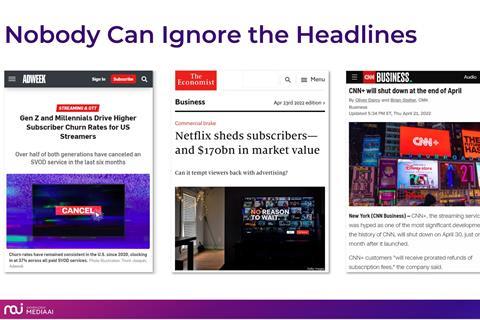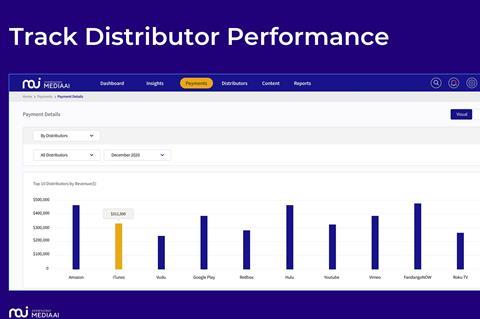In the IBC 365 webinar AI and Analytics, broadcasters and data experts discussed the changing expectations of analytics and the tricky question of calculating ROI.
The future of AI is a perennial hot topic at the best of times, and the source of much debate right across the media spectrum. One recent report from Accenture found that although some successful ‘AI savvy’ companies are already deriving 30% of their revenues from techniques around advanced analysis (such as scenario planning), only 12% of companies have managed to take full advantage of the advanced technology, with “most organisations barely scratching the surface.”

In 2021, Accenture also found that those executives of the world’s 2,000 largest companies (by market capitalisation) who discussed AI on their earnings calls, were 40% more likely to see their firms’ share prices increase - up from 23% in 2018.
The cost of AI implementation
The topic was also comprehensively discussed on a recent IBC webinar - AI and analytics, where ROI became a central plank of the conversation. Juan Carlos Sanchez, Co-Founder and Managing Director at FamilyPlayland took a pragmatic stance to AI analytics implementations. “It’s all about capital,” he says. “[Businesses are thinking] how much can I invest - and what’s the calculation of how much return we can get from that investment?
“It’s all about making a very financial decision. How much is [AI implementation] going to cost and what’s the value it’s going to generate? Is it going to cost $2 million to get back $100,000? Or is it more like $2 million to bring back $200 million? It’s a financial capital investment combination.”
The Accenture study found that nearly 75% of companies have already integrated AI into their business strategies and have reworked their cloud plans to achieve AI success.
Catherine Hallam, Head of Data Strategy (Commercial Advertising) at ITV, agreed and placed the emphasis on longer term value as well as short term gain. “I think the investment and the balancing that is a really important question and topic to consider on the approach because we at ITV often worked a little bit in silos. And so, when you’re talking about investments and pulling data together, it’s really important that tools work for all parts of our business.
“To get the maximum value back from those tools and to justify the investment and the numbers - the revenue and the growth in the churn and everything that we’re trying to aspire to, we need to make sure those tools are going to deliver what we need now and five years into the future. So, it’s a big journey.”
Are you an AI Experimenter or an AI achiever?
AI’s affinity with automating repetitive tasks is proving a boon in the broadcast sector, resulting in a wealth of applications that can refine complicated workflows, deliver usable and accurate speech-to-text, automatically generate metadata and create actionable data from analytics. And that’s just the start.

The Accenture study found that nearly 75% of companies have already integrated AI into their business strategies and have reworked their cloud plans to achieve AI success. However, the analyst firm highlighted the differences between those who are just experimenting and testing AI solutions, and those who the study dubs ‘AI Achievers’. The latter, according to Accenture, are 3.5 times more likely than ‘AI Experimenters’ to see their AI-influenced revenue surpass 30% of their total revenues.
Interestingly, one of the key markers of being an ‘AI Achiever’ business is an ability to focus beyond merely financial metrics. S.V. Vasudevan, Chief Technology Officer at Symphony MediaAI believes that classic analytics simply provides visibility: “it shows you where you’re going.”

But one of the powerful things that you can do with AI and machine learning is prediction, says S.V. Vasudevan. “This shows you: ‘where should I go?’ Because content procurement is - I guess you could call it an art - classically it’s built on relationships. It’s built on gut feel. I think that those elements will still [have their place] and remain [part of the media landscape]. But I think they’ll be supplemented with a great new set of decision support tools that will answer those ‘should I’ kind of questions. They will tell you where you should go, as opposed to telling you where you are right now…”
As anyone observing the AI and ML space will agree, the days of empty hype are very much on the way out, and the time of practical application for AI and ML is very much beginning in earnest. While there may be many impressive milestones already reached, it is quite clear that the future holds very much more for the technology, especially in the fields of automation and analytics.
To listen in to the full discussion around AI and machine learning in broadcasting, watch the IBC365 webinar: AI and analytics



























No comments yet